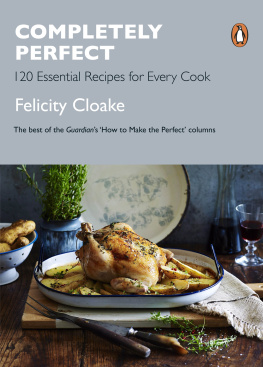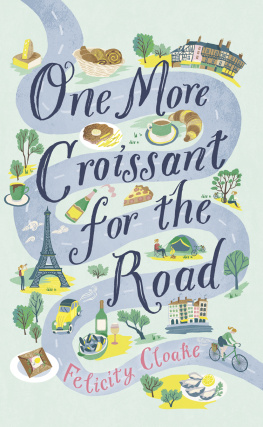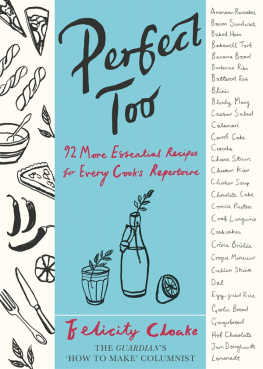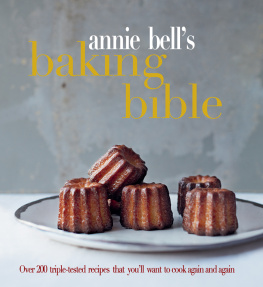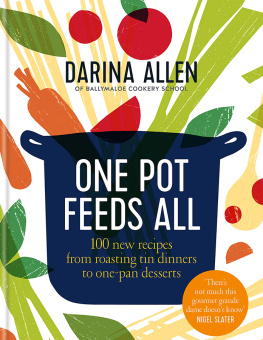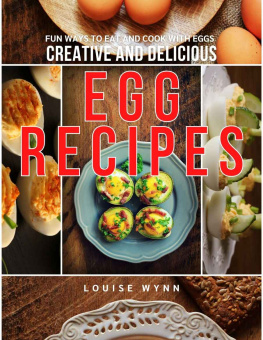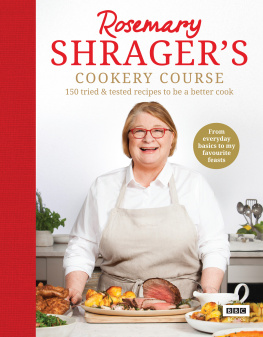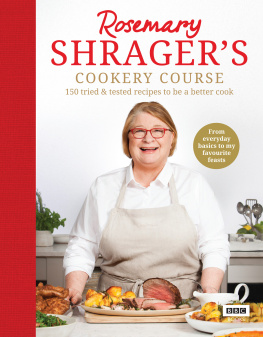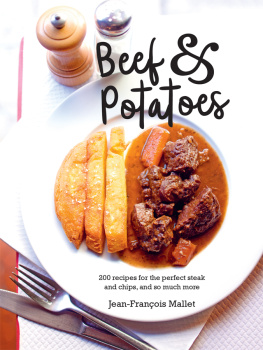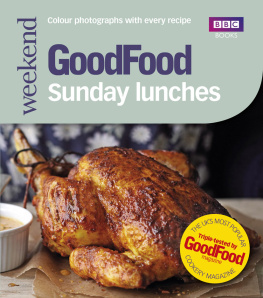COMPLETELY PERFECT
Felicity Cloake is an award-winning journalist and food writer from London, and the author of the Guardians long-running How to Make the Perfect column, as well as four books: Perfect, Perfect Host, Perfect Too and The AZ of Eating, which was shortlisted for the prestigious Andr Simon Award. She was the Fortnum & Mason Cookery Writer of the Year 2016 and the Guild of Food Writers Food Journalist of the Year 2011. She is the New Statesmans food columnist and also writes regularly for delicious, Sainsburys and olive magazines.
By the same author
Perfect
Perfect Host
Perfect Too
The AZ of Eating
Felicity Cloake
COMPLETELY PERFECT
120 Essential Recipes for Every Cook

PENGUIN BOOKS
UK | USA | Canada | Ireland | Australia
India | New Zealand | South Africa
Penguin Books is part of the Penguin Random House group of companies whose addresses can be found at global.penguinrandomhouse.com.
Text in this edition first appeared in Perfect, published in Fig Tree 2011 and Perfect Too, published in Fig Tree 2014
This updated selection published in Penguin Books 2018
Copyright Felicity Cloake, 2011, 2014, 2018
The moral right of the author has been asserted
Front cover image Trunk Archive
ISBN: 978-0-241-37782-6
For Suse, without whom none of this would have happened
Introduction
Perfect is a bold claim for anything, let alone something as personal as food taste is gloriously individual, and frankly, all the more wonderful for it. To call a recipe perfect, let alone eight years and two books worth of them, feels like the height of hubris; unless the raw ingredients happen to be the collected wisdom of the worlds finest cooks.
Let me take you back to the chilly winter of 2010, when I began writing a new column for the Guardian website, pitting Delia Smith and Gordon Ramsay against Heston Blumenthal and his mentor Harold McGee on the best way to prep mushrooms, trying out Michelin-star mash and making cheap jokes about pricks with forks during a hard-hitting investigation into sausage cookery. It soon became clear that mining the experts for tips was fertile ground: who better to tell you how to make chilli con carne than the good folks of the International Chili Society, or to deliver a primer on tarte au citron than the Roux brothers themselves?
Though, after almost a decade of cooking up dozens of recipes every month, Id class myself as a fairly competent home cook, the perfection within these pages has very little to do with me; it comes from the hundreds of chefs, cooks, food writers and helpful Guardian readers who have contributed to the feast that follows. These are the perfect recipes that Ive found the most useful over the years the Saturday lunch soups and Sunday night dals, the roast chickens shared with friends and the chocolate cakes baked in celebration (and even scaled up for a couple of weddings too).
The premise of the column is to test out as many different versions of a particular dish as possible, in order to establish, once and for all, what really works. Its surprising how often seemingly trustworthy sources disagree over the vital details whether to blind bake pastry, or put cream in carbonara which can be confusing, and often downright enraging when all you want is dinner. You may not have time to try out six different ways of making meatballs, or meringues, but I do, and believe me, after eight years, Im pretty damn critical.
Thankfully, after making a particular dish six or seven times, you get a good idea of where the potential for disaster lies, so I can promise you that every recipe in these pages works: Id stake my best knife on them. Where something seems like more a matter of personal preference than culinary life and death which vegetables to put in a minestrone, or whether cheese has any place in a gratin dauphinoise, for example Ive tried to flag this up so you can make your own choice according to taste.
These dishes arent cutting-edge food (youll search in vain for spherified kimchi juice or daikon dust) but they deliver. Few things in life are more certain than the fact that, when sous vide machines have gone the way of the melon baller, and spiralizers are two for a quid at car boot sales, well all still be enjoying crumble and custard.
A FEW TIPS
I have to admit, without wanting to do myself out of a single ounce of respect, that theres no great magic to cookery: as long as youve got that rare thing, a reliable recipe, and follow it fairly faithfully (a little more or less oil, or a generous hand with the chilli, is unlikely to kill a dish), very little can go wrong.
You can, however, make life easier for yourself in the kitchen: those happy souls who seem to find it all a breeze are usually just organized.
Check youve got all the ingredients, and equipment, before starting. I cannot stress this enough thinking vaguely that youve seen some ground almonds in the cupboard somewhere is not good enough if youre considering embarking upon macarons. (That said, confident cooks can usually find a decent substitute for most things; its all a matter of practice.)
Read the recipe carefully all the way through before starting, too: just in case, while the stews simmering on the hob, you should be making dumplings, rather than reading the paper.
Get all the ingredients out, measured in the correct quantities if possible, and put them close by where youll be working. The art of mise en place, or putting in place, before embarking on a recipe, is practised in professional kitchens for good reason; its all too easy for the garlic to burn while youre ferreting around for the bay leaves or tinned tomatoes.
Taste early and often (where practical), and always, always before serving something up (unless its a cake or a tart where a sneaky sliver is going to be obvious). Remember that seasoning can alter during the cooking process, so what tastes right when you add it might seem bland on the plate. Keep a load of teaspoons handy by the hob for this purpose. (Or use your fingers, its what they do in many professional kitchens. Sorry.)

Most disasters can be salvaged by a bit of lateral thinking. With sweet dishes, as long as its cooked, theres very little that cant be turned into a delicious dessert by mixing it with ice cream or crme frache. Savoury well, a generous sprinkle of herbs or grated Parmesan, or a jaunty fried egg garnish will hide a multitude of sins. And if all else fails, check out the quick fixes on page xxvi.
LAYOUT AND EQUIPMENT
You really need very little to be a decent cook: an oven or a hob (although some people swear by microwaves for melting butter, steaming vegetables and so on, theyre really not essential; I dont own one), and a few basics, so its better to spend money on good-quality items like knives, pans, et cetera, rather than buying a lot of stuff youll use once in a blue moon.
Think practically: Im not one of those food writers who gets sniffy about garlic presses (I use mine regularly), but if youve got a knife, you dont need one. The same, strictly speaking, goes for a colander: a large sieve will do the job just as well.

